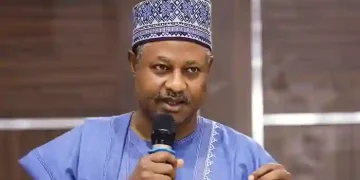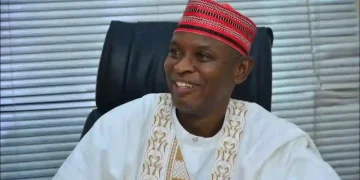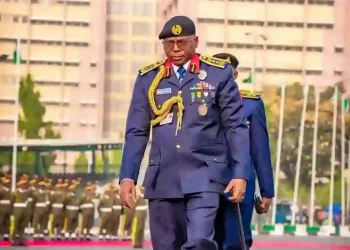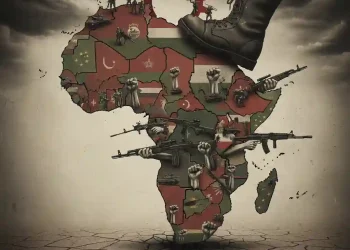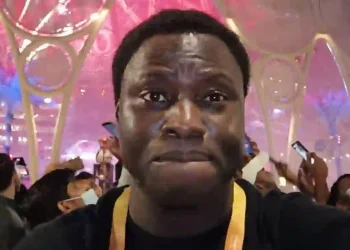For weeks now, every column I’ve penned has been an SOS to our leaders; act decisively, act now. Terror has transformed ordinary Nigerians into grim statistics, while governance has too often been reduced to bargaining with bandits and terrorists as though negotiating with death were a legitimate strategy.
Then, like a thunderclap from across the Atlantic, the U.S President, Donald Trump, lobbed a threat that feels like the shadow of an invasion looming over our heads. “We’re going to do things to Nigeria that Nigeria is not going to be happy about.” His words reverberated from Abuja’s corridors of power to the remotest villages, even to my own living room, reminding us that Nigeria’s crisis is no longer just domestic; it is global.
Trump’s threat isn’t just about Christian persecution by radical Islamists; it’s about something much deeper. With his “America First” stance, it’s clear that the US is looking out for its interests. So, what has Nigeria done to warrant this attention? Is it our strategic location, our vast resources, or something more sinister? Whatever it is, it’s crucial that our government acts now to protect our nation’s interests.
For a nation that has been battered for over a decade by Boko Haram, ISWAP, banditry, farmer‑herder clashes, and an ever-deepening religious mistrust, Trump’s ultimatum is not just another diplomatic flare‑up. It is a moment of truth. Do we fold under external pressure and internal paralysis, or do we seize it as a catalyst to rebuild a nation that protects every life, every faith and every future?
Nigeria’s inclusion on the U.S. State Department’s Countries of Particular Concern (CPC) list is more than a diplomatic embarrassment. It is a damning verdict on our government’s failure to protect its citizens.
The designation carries heavy consequences such as;
- Suspension of military and security assistance
- Cuts or redirection of foreign aid
- Visa restrictions on complicit officials
- Severe reputational damage that deters investors
Countries like North Korea, Iran, and Myanmar already bear this badge of shame. Nigeria now risks joining their ranks.
Parallel to CPC is the Global Magnitsky Act, which targets individuals, politicians, governors, military officers, or religious leaders found guilty of human‑rights abuses or corruption. Sanctions include visa bans, asset freezes, and international stigma. As Segun Showunmi aptly put it: “CPC says the country has failed; Magnitsky says we know who is responsible and they will pay personally.”
On November 4, 2025, President Bola Tinubu, in a nationally televised address, reaffirmed Nigeria’s constitutional guarantee of religious freedom, condemned violence across faiths, and pledged an interfaith security task force. He also promised to reassess Nigeria’s reliance on U.S. security assistance, seeking alternative partnerships that respect our sovereignty.
Yet critics argue his response is too slow, too shallow. No legislative reforms. No sanctions on perpetrators. No visible diplomatic outreach to neutralise the CPC threat. For many, it feels like political reassurance rather than a substantive plan.
In Plateau State, Reverend Ezekiel Dachomo of COCIN has become a fearless voice against what he calls “Christian genocide.” Despite threats to his life, he refuses to flee, declaring: “If they want, they can kill me, but I will not stop telling the truth.” His defiance underscores the human cost behind the geopolitical rhetoric.
What does this mean for Nigeria?
- Economic Shockwaves: Investor confidence could collapse, weakening the naira and deterring foreign direct investment. Our economy is already on shaky ground; we can’t afford to play with fire.
. Aid cuts, which may shrink food security and health programmes. - Diplomatic Pressure: Western allies may reconsider security and trade partnerships. Trump’s framing has stirred nationalist sentiment but also exposed Nigeria’s fragile cohesion.
- Security Risks: Reduced cooperation with the U.S. could cripple intelligence sharing against Boko Haram, ISWAP, bandits, and farmer‑herder violence.
Nigeria cannot afford paralysis. This is our moment of truth.
- Security: Investigate and prosecute every religiously motivated killing, irrespective of faith, with transparency and accountability.
- Governance: Enact reforms that tackle poverty, inequality, climate‑driven farmer‑herder conflict, and weak institutions.
- Diplomacy: Engage the U.S. and global partners with data‑driven dialogue, while strengthening security partnerships on our own terms.
- Safeguard vulnerable citizens/voices like Reverend Dachomo with concrete security guarantees.
Trump’s words echo in our streets, markets, and homes. They expose a nation bruised by terror, betrayed by leaders who bargain with death, and now threatened by foreign ultimatums. Yet in that mirror, we also see courage, ordinary Nigerians demanding accountability, refusing division, and carrying within them a fire of dignity.
The question is clear: will we let that fire be smothered, or will we fan it into a blaze of unity, accountability, and hope?
The answer lies not in Washington, but in the concrete actions we take together, here and now.
Nigeria’s destiny will not be rewritten by threats from abroad. It will be rewritten by the courage of its people and the resolve of its leaders.
Boma Lilian Braide writes from the FCT.

Seunmanuel Faleye is a brand and communications strategist. He is a covert writer and an overt creative head. He publishes Apple’s Bite International Magazine.








